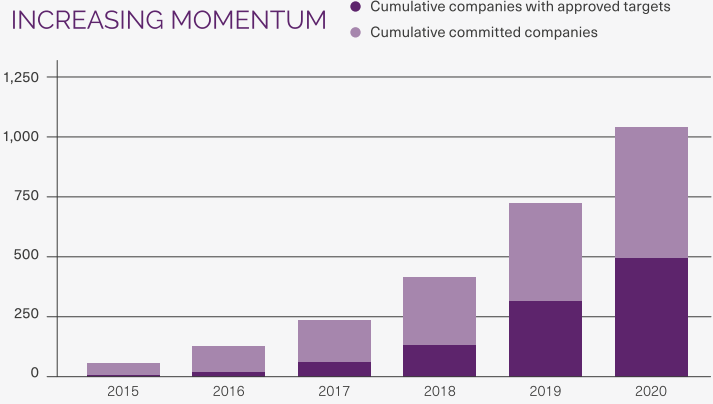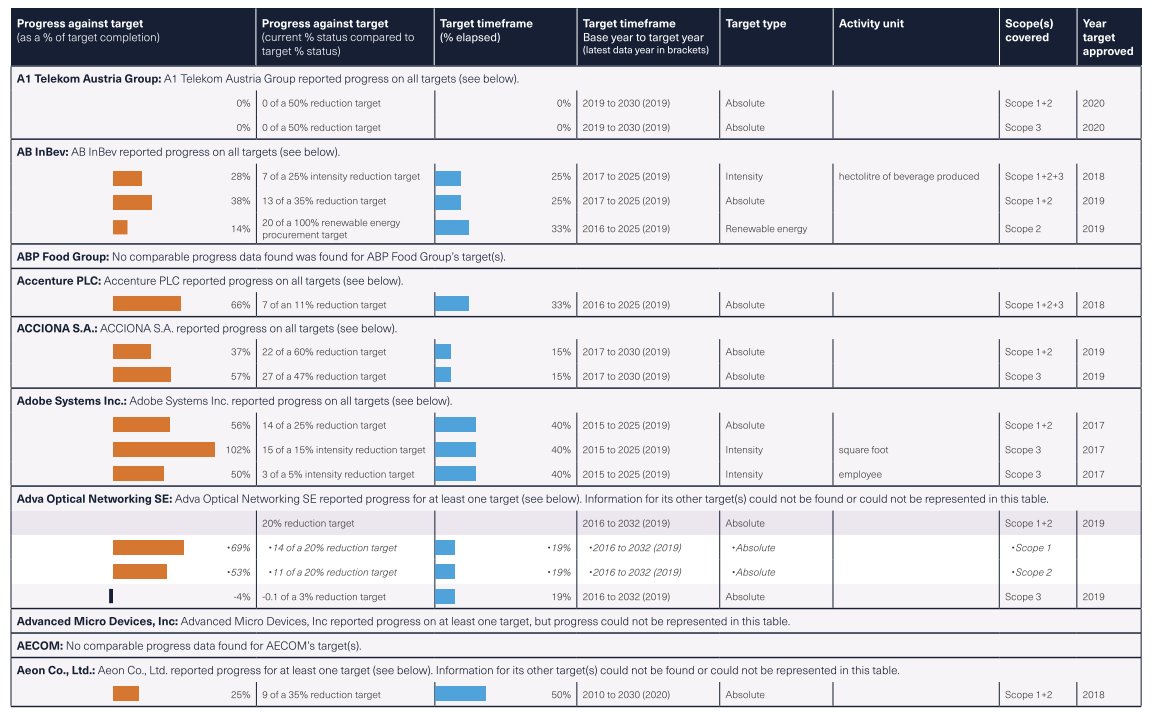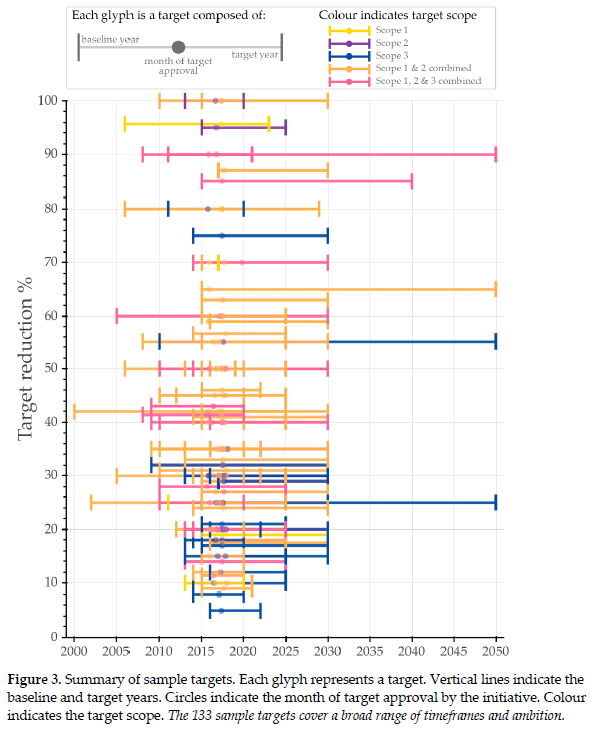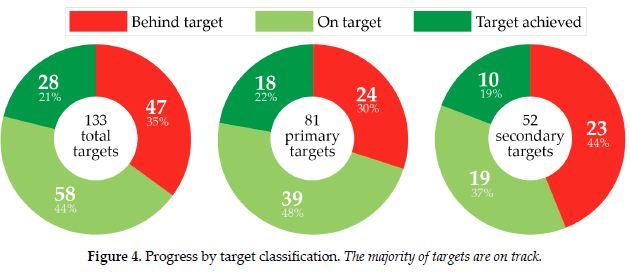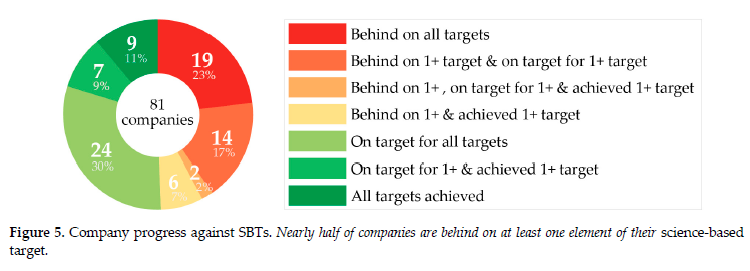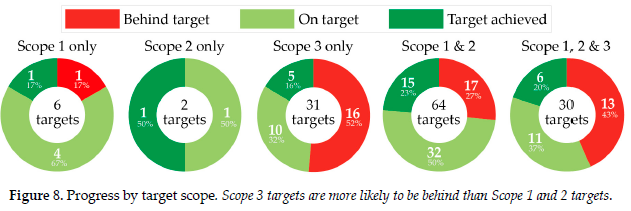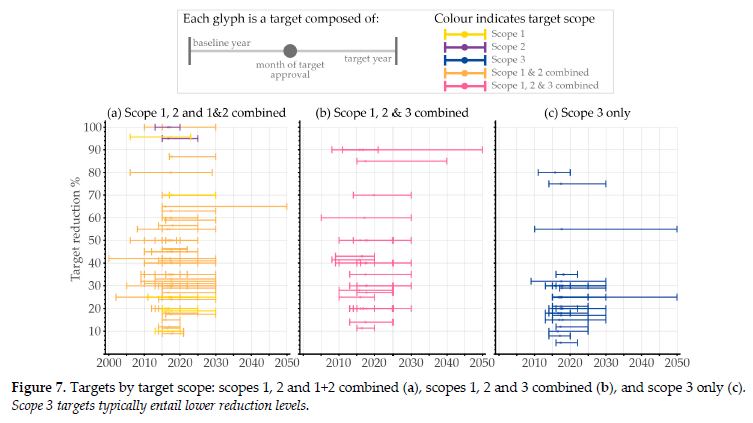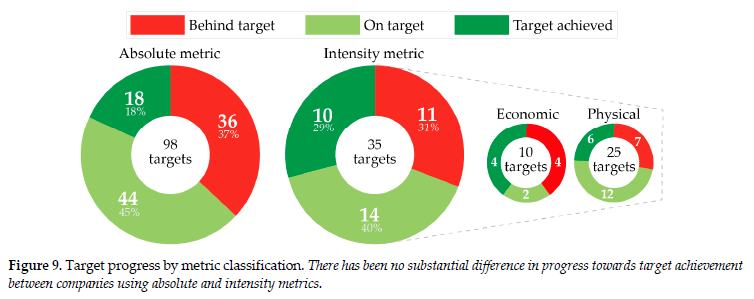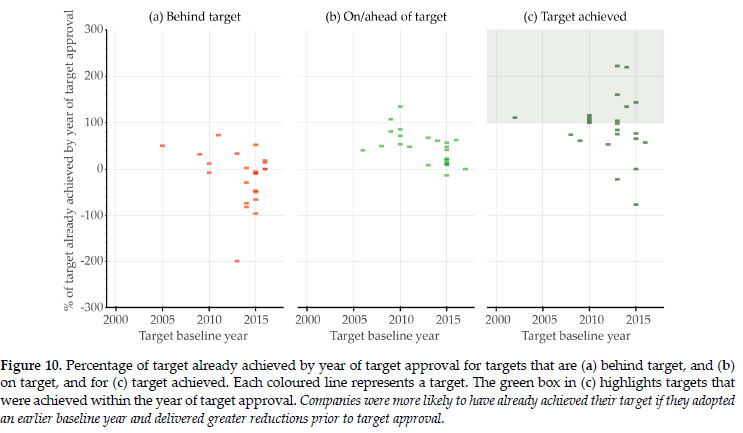Science Based Targets: on target? New paper online today from @garveygreen, J Norman, @Sam_BettsDavies & me looking at progress amongst early adopters of the Science Based Targets Initiative.  Thread of key results after a few tweets on timing & samples. https://www.mdpi.com/2071-1050/13/4/1657
Thread of key results after a few tweets on timing & samples. https://www.mdpi.com/2071-1050/13/4/1657
 Thread of key results after a few tweets on timing & samples. https://www.mdpi.com/2071-1050/13/4/1657
Thread of key results after a few tweets on timing & samples. https://www.mdpi.com/2071-1050/13/4/1657
The Science Based Targets Initiative is a rapidly growing voluntary initiative encouraging companies to set carbon reduction targets aligned with the Paris Agreement goals. Over 1100 companies making up nearly 20% of global market capitalization have committed so far
These ‘science-based targets’ are developed using a common set of resources and target-setting methodologies, then independently assessed and approved by a technical advisory group. See https://sciencebasedtargets.org/how-it-works for more on how it works
5 years on from the initiative's launch we wanted to know how companies were getting on. In past years the initiative had published figures about uptake and coverage of the scheme but no quantitative assessment of how companies were performing against their targets...
That changed last week when @sciencetargets published an annual report including their first assessment of progress to date. Unfortunately we'd already finished our paper doing something similar (but in more detail on a smaller sample of companies) & were waiting on publication.
We started talking about the premise for the paper in March 2019; gathered the data & wrote the paper in 2020; with internal reviews in October 2020. We submitted to the journal later that year & article was peer reviewed before the SBTi report was released on 26/01/21.
So when the paper claims it's the first quantitative assessment of progress that was true at the time of writing. Unfortunately academic publishing takes time but results in a better output than say a quick blog post that we could have written last summer.
We were not aware that the initiative was going to publish their first assessment of progress in January and purposefully did not inform the initiative about our study as we wanted it to remain fully independent.We did present results to independent experts to refine our analysis
Last week's @sciencetargets report covered 338 companies up to Oct 2020. Our sample is smaller as we only included companies that were at least 2 years past approval & data was gathered earlier in 2020 so will differ in some details. Sources were similar: CDP, company reports etc
Whilst SBTi excluded a number of targets (below) such as SMEs, companies not reporting through CDP, targets that didn't fit their table format etc - we didn't. We tried to gather data on every element of every target including the more esoteric supply chain focused ones.
We compared reductions with target trajectories and also analysed progress by additional parameters such as different metric types, target scope, CDP scores etc. We also looked at the influence of baseline year selection, progress already made prior to target approval and so on..
Much like @sciencetargets found, the quality of company reporting was highly variable and we welcome the initiative's commitment to prepare a new MRV protocol. We'd be happy to assist with this based on common errors encountered during our data gathering.
A 'science based target' can contain multiple commitments. We split each into a separate target. Our sample covers 133 targets + 22 further commitments (like supplier engagement). We had to exclude a further 35 targets for which we couldn't find sufficient data on progress.
We designated each target as being ‘behind’, ‘on target’ or ‘achieved’ depending on progress against their stated trajectory (or an assumed linear trajectory where not stated). 65% of targets were found to be on track or already achieved.
A small number of companies had already achieved all their targets but nearly half were behind on at least one element of their science based target
Typically it was Scope 3 targets that were proving the most challenging to deliver - with more than half of Scope 3 only targets falling behind. This is in spite of the Scope 3 targets typically entailing lower reduction levels.
We didn't find any difference in progress by metric classification, with all companies that were on target with intensity based metrics also reducing absolute emissions.
Targets that were on track more often used earlier baseline years and 25 of 28 targets that have been achieved had already delivered >40% of required reductions by the end of the year of target approval.
We outline a long list of areas for further research and discuss a number of ways in which this key agenda-setting initiative could be strengthened. Read the paper for more details - https://www.mdpi.com/2071-1050/13/4/1657

 Read on Twitter
Read on Twitter